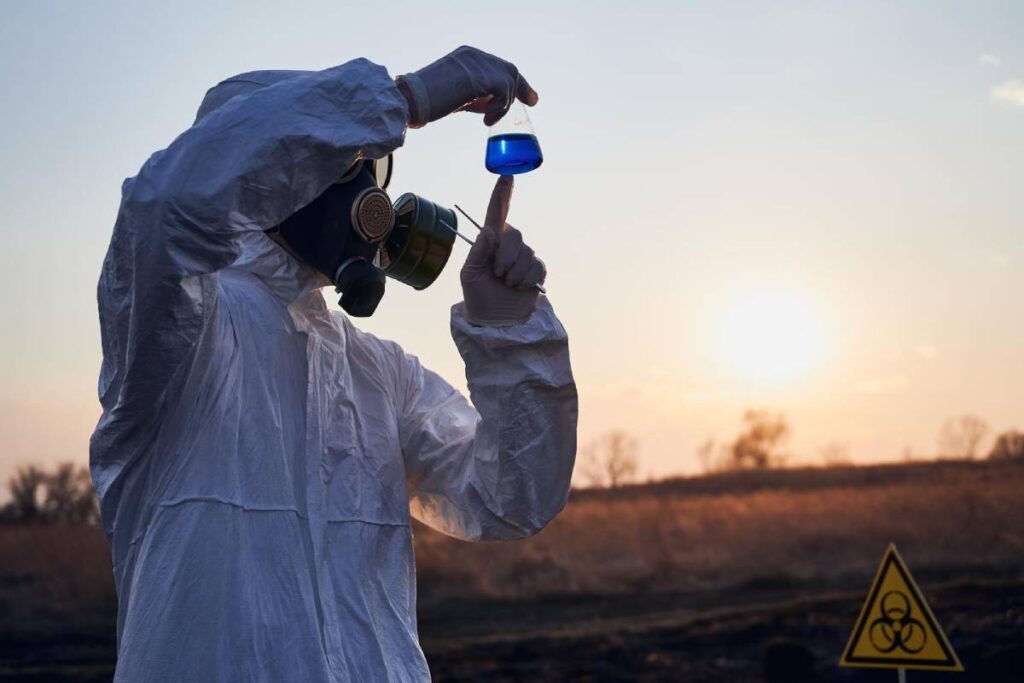Exploring Forensic Science and Criminology: Solving the Mysteries of Crime
Sherlock Homes, Hercule Poirot, and Miss Marple have fascinated a number of curious minds for a number of years.
Not to forget our very own Karamchand, Byomkesh Bakshi who made investigations ever so fascinating.
To add to it crime shows on various channels of TV like CID, Crime Patrol, Khotey Sikkey, Dial 100, Tehkikaat, and Castle have added to the popularity of investigative sciences like forensics.
Forensic science is the application of science to the investigation of crime. When a crime is committed there are many different types of evidence found at the crime scene.
It could include traces of any object, paint, soil, blood, saliva, body fluids, digital evidence, plant material, bones, documents, or fingerprints.
Forensic Science uses physical science such as Chemistry, Biology, and Physics to analyze the evidence found at the crime scene, uses that analysis to help law enforcement catch the criminal, and most importantly present that evidence in court.
While Criminology is the study of crime. A criminologist uses different social sciences such as sociology, and psychology to understand crime and criminal behavior.
 Criminology typically includes studying different types of crime, the causes behind the crimes, the occurrence or incidence of crime in various parts, the consequences of the crime as well as the society’s perception, different rules and punishment, and preventive strategies for crime.
Criminology typically includes studying different types of crime, the causes behind the crimes, the occurrence or incidence of crime in various parts, the consequences of the crime as well as the society’s perception, different rules and punishment, and preventive strategies for crime.
Educational Qualification
To become a Forensic Scientist one needs to first complete a Bachelor’s in Forensic or Physical or Biological Science and further pursue M Sc [Forensic Science]. To become a Forensic Pathologist one has to complete MD in Forensic Medicine after successfully completing his/her MBBS.
There are Graduate as well as Post Graduate courses in Criminology. One can pursue it either after 10+2 or after having a graduate degree in the Arts or Science field. Criminology is also offered as a specialization at the master’s level in Social Work.
Personality Traits
For Forensic science the required traits and skills are,
- Inquisitive mind
- Eye for detail
- Focus on accuracy
- Tolerance and ability to adapt to difficult situations
- Objectivity
- Good observation skills
- Methodical approach
- Problem-solving ability
- Analytic thinking
- Adaptability
For a successful career in criminology, one must possess,
- Inquisitive mind
- Interest in human behavior
- Ability to work in teams
- Problem-solving skills
- Research and analytical skills
- Observation skills
However one has to understand that the work areas are not very welcoming or defined. In fact, one needs to be mentally strong to deal with the worst of human behavior as well as settings as working with criminals as well law enforcement agencies simultaneously is not an easy job.
Job Prospects
A Forensic Scientist can work as a Crime scene Investigator, Forensic Pathologist, Trace evidence analyst, or Expert analyst in forensic specializations.
A Criminologist can work as an analyst, teacher, reviewer, and reformer of law, revising ways of criminal rehabilitation and as a researcher working to improve the criminal justice system.
Both these fields offer opportunities in:
- Government and private forensic labs
- Private detective agencies
- Government agencies such as CBI, IB, RAW
- Crime cells of police forces
- NGOs
- Juvenile Shelters
- Rehabilitation Centers
Crimes have been committed from time immemorial and continue to happen in today’s world too. With the increasing need for effective measures to stop and prevent crime, Forensic Science and Criminology have become a necessity.
This field is constantly evolving with the development of new technology and new ways of investigation.
Passion for giving justice will definitely bring success for an aspiring crime fighter or the new generation Sherlock Holmes.
Frequently Asked Questions about Forensic Science and Criminology:
Q1: What is forensic science, and how does it relate to criminology?
A1: Forensic science is the application of scientific methods to solve crimes, while criminology is the study of crime and its causes. Forensic science supports criminology by providing the tools to investigate and solve crimes.
Q2: What are the primary branches of forensic science?
A2: Forensic science includes branches like forensic biology, forensic chemistry, forensic anthropology, digital forensics, and forensic psychology, each specializing in different aspects of criminal investigations.
Q3: What does a forensic scientist do in the investigation process?
A3: Forensic scientists collect and analyze physical evidence, such as DNA, fingerprints, ballistics, and trace evidence, to help law enforcement agencies in solving crimes.
Q4: What career opportunities are available in forensic science and criminology?
A4: Career options include forensic scientist, crime scene investigator, forensic psychologist, forensic pathologist, criminal profiler, and criminologist.
Q5: How can I pursue a career in forensic science and criminology?
A5: To enter these fields, you typically need a relevant degree, such as a bachelor’s or master’s in forensic science, criminology, or a related field. Additional training and certifications may be required for specific roles.
Q6: What skills are essential for success in forensic science and criminology?
A6: Strong analytical, problem-solving, and communication skills, attention to detail, and the ability to work in high-pressure situations are important for these careers.
Q7: Are there ethical considerations in forensic science and criminology?
A7: Yes, professionals in these fields must adhere to ethical standards, including maintaining objectivity, ensuring evidence integrity, and respecting privacy rights.
Q8: How has technology influenced forensic science and criminology?
A8: Technology has revolutionized these fields with advancements like DNA analysis, digital forensics, and surveillance techniques, making investigations more precise and efficient.
Q9: Can forensic science and criminology help prevent crimes, not just solve them?
A9: Yes, research in criminology helps policymakers develop strategies for crime prevention, and forensic evidence can deter potential offenders by increasing the likelihood of prosecution.
Q10: What are some famous cases where forensic science played a critical role?
A10: Notable cases include the O.J. Simpson trial, the JonBenét Ramsey case, and the Unabomber investigation, where forensic evidence played a significant role in the outcomes.
Q11: Is it necessary to work directly with crime scenes to have a career in these fields?
A11: No, there are various roles in forensic science and criminology that do not involve direct crime scene work, such as research, teaching, and policy analysis.
Q12: What is the relationship between psychology and criminology in understanding criminal behavior?
A12: Forensic psychology is the intersection of psychology and criminology, focusing on the psychological aspects of criminal behavior, including profiling, assessments, and therapy for offenders.
Q13: How have forensic science and criminology contributed to advancements in criminal justice and law enforcement practices?
A13: These fields have improved the accuracy of evidence analysis, the identification of criminals, and the understanding of criminal behavior, leading to fairer and more effective criminal justice systems.
Q14: Are there interdisciplinary programs that combine both forensic science and criminology studies?
A14: Yes, some universities offer programs that integrate elements of both fields, providing a comprehensive education in criminal investigations and analysis.
Q15: What are the current trends and challenges in forensic science and criminology?
A15: Current trends include the use of artificial intelligence, cybercrime investigation, and the ethical use of emerging technologies. Challenges include managing case backlogs and addressing issues of evidence mishandling.






